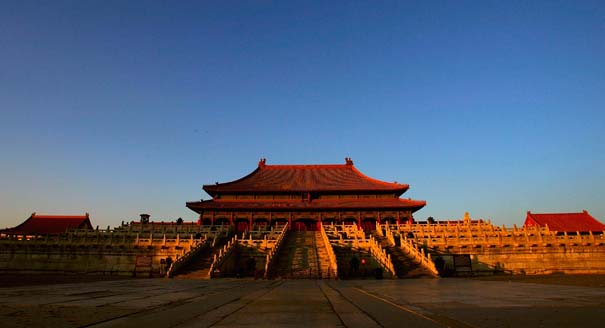As presidents Obama and Xi are now meeting in California for a “blue sky” chat, America and China have come closest to forming a G-2. Even if it is never formalized—and it probably will not be—regular Sino-U.S. summits are indispensable for global stability and prosperity. China has risen to the level when it is no longer a thing unto itself; it has achieved global presence and will need to assume a fair portion of responsibility for running the world. Beijing will not accept this responsibility from Washington’s hands, as a stakeholder in a U.S.-dominated system, but it will gradually but steadily broaden its international horizons, even if the leadership’s focus for decades to come will stay at home.
Many fear China’s rise because of the challenge that its authoritarian system, based on a fast growing economy, poses to the West and the U.S. domination of global politics. In fact, such competition is welcome. Without an outside challenge to the consensus in Washington or in Brussels, that consensus is likely to degenerate into complacency and lead to decay. Thus, the China challenge can be salutary. It is doubly welcome because competition is having an increasing impact on China. The more the Chinese are looking not from where they started their reforms but where they want to be, the more clearly they see the problems in their own system.
These problems—economic, social, political, and moral—are huge, and China’s progression is unlikely to be linear. China is probably cruising for a soft landing, but it might stumble into a rough one. Lionizing China, as Lilia Shevtsova rightly argues, is short-sighted, but looking forward to its inevitable collapse is utterly foolish. China has already arrived. Its new weight is a serious matter for its neighbors, from Japan to Vietnam to India to Central Asia. Deng Xiaoping’s low-profile foreign policy is on the way out: China has simply grown too big for it. The Chinese are becoming more assertive, and overtly nationalistic.
This is the time for serious thinking. To rise to the challenge of China’s rise, Europe needs to become a strategic player, as Jan Techau argues. Beyond its “Eurasian diplomacy” which Akio Kawato analyzes, Japan has to find a way to relaunch itself. India, in the words of Petr Topychkanov, has to make itself competitive. As to Russia, the Chinese have a pretty good sense of what they want from it: see Zhao Huasheng’s entry. As the Russians continue to craft their Asia-Pacific policy, they need to come up with a long-term strategy toward their biggest and still growing neighbor.
